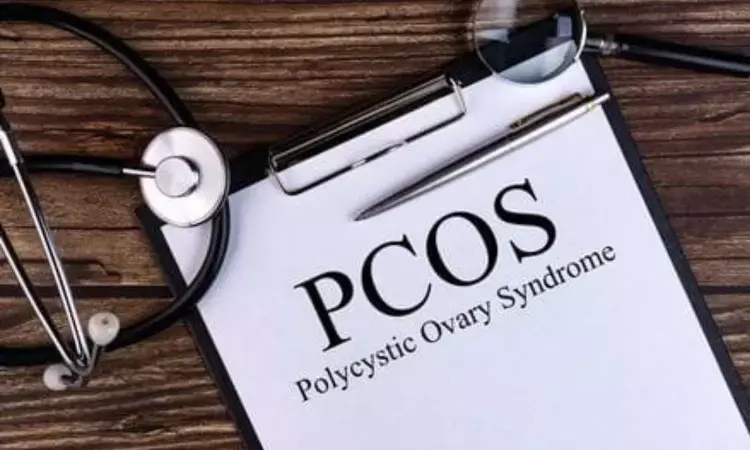- Home
- Medical news & Guidelines
- Anesthesiology
- Cardiology and CTVS
- Critical Care
- Dentistry
- Dermatology
- Diabetes and Endocrinology
- ENT
- Gastroenterology
- Medicine
- Nephrology
- Neurology
- Obstretics-Gynaecology
- Oncology
- Ophthalmology
- Orthopaedics
- Pediatrics-Neonatology
- Psychiatry
- Pulmonology
- Radiology
- Surgery
- Urology
- Laboratory Medicine
- Diet
- Nursing
- Paramedical
- Physiotherapy
- Health news
- Fact Check
- Bone Health Fact Check
- Brain Health Fact Check
- Cancer Related Fact Check
- Child Care Fact Check
- Dental and oral health fact check
- Diabetes and metabolic health fact check
- Diet and Nutrition Fact Check
- Eye and ENT Care Fact Check
- Fitness fact check
- Gut health fact check
- Heart health fact check
- Kidney health fact check
- Medical education fact check
- Men's health fact check
- Respiratory fact check
- Skin and hair care fact check
- Vaccine and Immunization fact check
- Women's health fact check
- AYUSH
- State News
- Andaman and Nicobar Islands
- Andhra Pradesh
- Arunachal Pradesh
- Assam
- Bihar
- Chandigarh
- Chattisgarh
- Dadra and Nagar Haveli
- Daman and Diu
- Delhi
- Goa
- Gujarat
- Haryana
- Himachal Pradesh
- Jammu & Kashmir
- Jharkhand
- Karnataka
- Kerala
- Ladakh
- Lakshadweep
- Madhya Pradesh
- Maharashtra
- Manipur
- Meghalaya
- Mizoram
- Nagaland
- Odisha
- Puducherry
- Punjab
- Rajasthan
- Sikkim
- Tamil Nadu
- Telangana
- Tripura
- Uttar Pradesh
- Uttrakhand
- West Bengal
- Medical Education
- Industry
Propolis supplementation beneficial for women with polycystic ovarian syndrome

Iran: A randomized, triple-blinded, placebo-controlled clinical trial showed the positive effect of propolis supplementation in women with polycystic ovarian syndrome (PCOS).
The study findings, published in Phytotherapy Research, revealed the positive effects of propolis supplementation on insulin resistance and fasting insulin, in addition to reducing LDL/HDL and hip circumference (HC), the testosterone in women with PCOS.
Polycystic ovary syndrome is an endocrine disorder linked to type 2 diabetes, insulin resistance, and increased levels of androgen hormone. About 4–8% of reproductive-age females are affected by it and is associated with cystic structure formation in the ovaries and ovulation disorder.
Propolis (bee glue) comprises of approx. 50% resin, 30% beeswax, 10% aromatic oils, 5% flavonoid groups, and 5% pollen and various phenolic compounds and aromatic substances. Propolis has immunostimulatory, anaesthetic, anti-inflammatory, and antimicrobial effects. It also has anti-ageing, anti-fungal, anti-cancer, and anti-allergic immunomodulatory effects due to its flavonoid content. Previous studies have shown propolis can regulate ovarian hormone function and improve the development and function of the digestive system.
Elahe Abbasi, Isfahan University of Medical Sciences, Isfahan, Iran, and colleagues designed a triple-blind controlled trial to evaluate the effect of propolis on high-sensitivity C-reactive protein, metabolic factors, and testosterone in women with PCOS.
The study included women with PCOS referred to the gynaecologist clinic located at Shahid Beheshti Hospital in Isfahan. They were randomized into two groups receiving propolis supplement and placebo, based on a stratified permuted four-block randomization procedure. The intervention group (n=30) received two tablets per day of 500 mg propolis/day or identical placebo tablets (n = 30) for 12 weeks from 2021 until 2022. During this period, participants are advised to eat a healthy diet and perform 30-45 minutes of physical activity daily.
Data collection was done using blood samples, a demographic questionnaire, and a checklist to record the measured parameters. 57 patients completed the trial.
The researchers reported the following main findings:
- ANCOVA test showed that hip circumference), fasting insulin, homeostatic model assessment for insulin resistance (HOMA-IR), testosterone, and low-density lipoprotein (LDL)/high-density lipoprotein (HDL) were significantly decreased in the propolis versus the placebo group after adjustment for confounders.
- Fasting blood glucose decreased significantly in the propolis group compared to the placebo, after adjusting for confounders but the significance was lost.
"Supplementation with propolis in PCOS women elicited positive effects on fasting insulin and insulin resistance, in addition to reducing the testosterone level, LDL/HDL, and HC," the researchers concluded.
Reference:
Abbasi E, Bagherniya M, Soleimani D, Ghasemi-Tehrani H, Abbaspour M, Clark CCT, Askari G. The effects of propolis supplementation on high-sensitivity C-reactive protein, testosterone hormone, and metabolic profile in women with polycystic ovary syndrome: A randomized, triple-blinded, placebo-controlled clinical trial. Phytother Res. 2023 Sep 2. doi: 10.1002/ptr.7977. Epub ahead of print. PMID: 37658679.
Dr Kamal Kant Kohli-MBBS, DTCD- a chest specialist with more than 30 years of practice and a flair for writing clinical articles, Dr Kamal Kant Kohli joined Medical Dialogues as a Chief Editor of Medical News. Besides writing articles, as an editor, he proofreads and verifies all the medical content published on Medical Dialogues including those coming from journals, studies,medical conferences,guidelines etc. Email: drkohli@medicaldialogues.in. Contact no. 011-43720751


